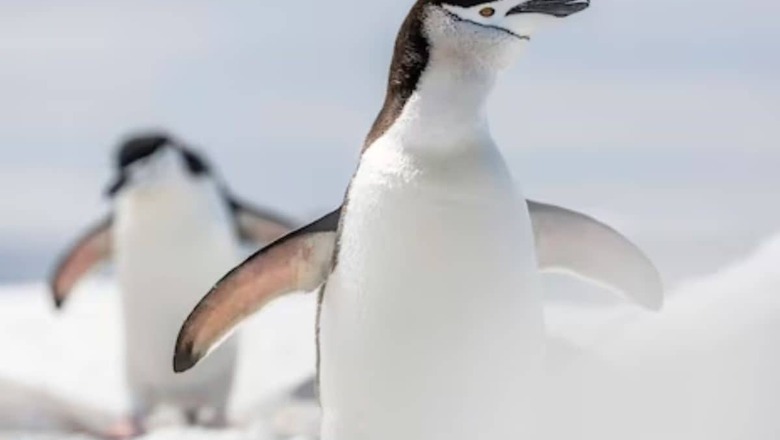
views
Just like humans can sleep while reading or working on a computer, certain birds can sleep briefly while engaged in activities. But there’s a particular bird that seems to have perfected the art of these short naps.
In a recent study, researchers found that chinstrap penguins, while breeding, take more than 10,000 brief naps every day, lasting an average of four seconds each. This sleeping pattern allows the birds to amass approximately 11 hours of sleep daily. Surprisingly, this challenges the commonly held human belief that fragmented sleep can negatively impact overall sleep quality.
The Guardian reports that chinstrap penguins are the only bird species on Earth known for taking 10,000 short naps daily. This behaviour is tied to the brief duration of these naps, lasting only 4 seconds each. Researchers observed that these penguins nap while moving their necks. The frequent napping is driven by their constant concern for the safety of nests, eggs, and offspring. Motivated by a protective instinct, the penguins repeatedly open their eyes during these brief naps to closely monitor their eggs and chicks.
Scientists have found that chinstrap penguins take 11-hour naps daily, based on research dating back to the 1980s. Initially, it was observed that penguins sleep in short bursts. Researcher Paul-Antoine Libourel from the Lyon Neuroscience Research Center states that humans cannot follow this sleep pattern. Libourel clarifies that due to the significant structural differences and variations in sleep patterns, achieving such prolonged sleep periods may not be possible for humans.
In the Southern Hemisphere, black and white chinstrap penguins exhibit impressive diving skills, reaching depths of 70 metres. Despite having wing-like flippers, these penguins cannot fly; instead, they use their flippers for efficient swimming as aquatic animals.
Recognisable by a distinct thin black stripe under their heads, they are named chinstrap penguins. Notably, they can rapidly dive to 70 metres and snatch food at 10 metres in just 30 seconds. Their tendency for nocturnal diving is a common behaviour. In late November, chinstrap penguins lay eggs, and the chicks hatch in early January.



















Comments
0 comment